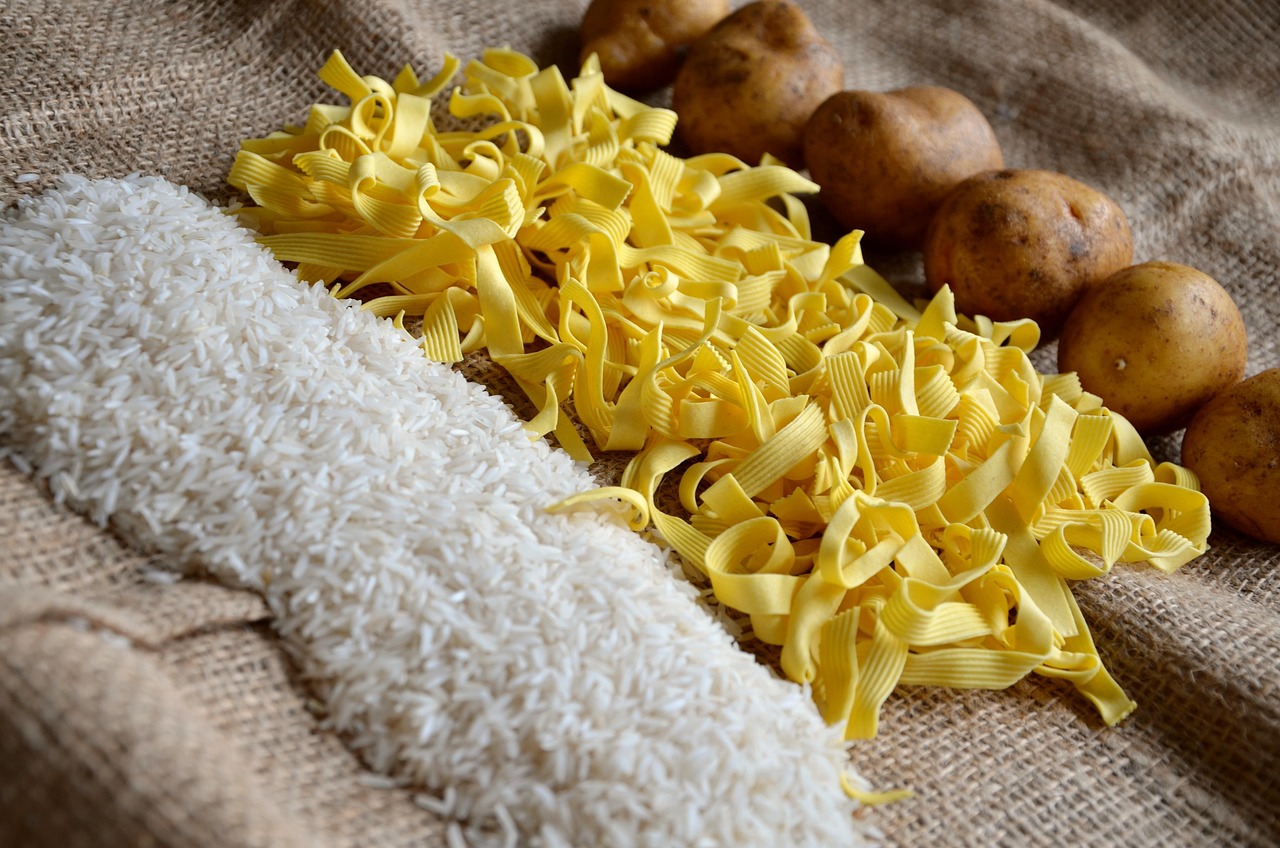
You’ve Been Lied To: 7 Carb Myths That Are Destroying Your Diet
Carbs are known to be the biggest source of fat gain.
And you’ve probably heard trainers saying: “Cut down the carbs,” “Bread is poison,” “You must adopt a low-carb diet to lose weight.”
And maybe, just maybe, you’ve cut them out… Then what? You’re most likely to feel tired, cranky, and then eventually get a bowl of pasta with zero regrets until the guilt hits.
But the truth is: carbs are not the enemy. Misinformation is.
That is not the only myth people have when they decide to go on a diet. Let’s take a look at how many myths you’ve been blindly following all these years and how you can include them in your diet to actually fuel your body.
What Are Carbs, Really? (The Quick Reality Check)
Read that twice! Carbohydrates are one of your body’s main sources of energy.
They break down into glucose, which fuels your brain, muscles, boosting your daily activities. Without enough carbs, your energy crashes, workouts suffer, and your mood fluctuates, which can instantly impact your focus.
There are two basic types of carbs:
- Simple carbs: Easy to digest (example: candy, soda, refined sugar).
- Complex carbs: Slower-digesting and full of fiber (example: oats, sweet potatoes, whole grains, fruits, legumes).
Let’s get it straight: not all carbs are equal. Some will nourish you, while others drain you. And here’s how never ending myths about carbs actually begin.
Myth #1: “All Carbs Make You Fat”
Weight gain is one of the prominent reasons why people cut down on carbs. However, trust is because you consume more calories than your body needs.
In fact, fiber-rich carbs like oats, quinoa, and legumes can help with weight loss by keeping you full longer and cutting down the mindless snacking.
The real issue: You don’t have to overeat highly processed carbs loaded with sugar and fat (such as pastries, chips, or donuts).
Myth #2: “Low-Carb Diets Are the Only Way to Lose Weight”
Yes, cutting carbs can lead to quick weight loss. But the initial drop is water, not fat. And for many people, low-carb diets are hard to sustain in the long run. Once carbs enter your body, weight is most likely to increase.
Sustainable fat loss comes from being in a healthy calorie deficit, not from banning carbs from your body.
Myth #3: “Bread and Pasta Are Always Bad”
Refined white bread and processed pasta may lack nutrients. But it is not necessary that every pasta has the same amount of carbs.
Whole-grain versions:
- Contain fiber to improve digestion.
- Provide steady energy.
- Help regulate appetite.
- Support heart health.
The problem usually isn’t the bread or pasta; it’s the oversized portions with plenty of high-calorie sauce poured all over it.
Myth #4: “Carbs Cause Diabetes”
Carbs alone don’t cause weight gain. It is most likely due to Type 2 diabetes that comes from long-term poor dietary habits, excess calorie intake, lack of activity, and genetics.
Refined carbs with little fiber can spike blood sugar quickly, but complex carbs help regulate blood sugar levels because they digest slowly and support insulin sensitivity.
Whole grains, legumes, and fruits are best for diabetes prevention and management, not to be avoided.
Myth #5: “Fruit Has Too Much Sugar to Be Healthy”
Yes, fruit contains sugar, but it’s natural sugar paired with fiber, water, and antioxidants, which benefit your body. The fiber slows sugar absorption, preventing the rapid spikes seen with processed sweets.
People who eat fruit regularly usually have healthier body weights and better metabolism.
Great fruit choices for fat loss and energy: berries, apples, pears, kiwi, grapefruit, and oranges.
Myth #6: “You Should Avoid Carbs at Night”
Carb timing is far less important than total daily intake. Eating carbs in the evening doesn’t turn them into fat.
In fact, for active individuals, having carbs at night may improve muscle recovery and even promote better sleep.
It’s all about eating mindfully. You need to include sweet potato, quinoa, and brown rice in your diet and maintain appropriate portions.
Myth #7: “Carbs Kill Your Energy and Make You Bloated”
The opposite is often true. Carbs are a preferred source of energy. Without carbs, you can end up feeling fatigued and having brain fog throughout the day. If you’re looking for ways to overcome fatigue, test out these hacks to minimize it and stay focused throughout the day.
On the other hand, bloating can occur when you increase your fiber intake or consume highly processed carbs, high in sodium, and additives.
Choose whole, minimally processed carbs and allow your body time to adjust fiber intake gradually.
What Are the “Good” Carbs? (Your Actionable Checklist)
Look for carbs that are:
- High in fiber
- Minimally processed
- Nutrient-dense
- Slow-digesting
Top choices for good carbs:
- Oats
- Quinoa
- Brown or wild rice
- Sweet potatoes
- Whole grain bread/pasta
- Legumes (beans, lentils, chickpeas)
- Vegetables
- Fruits
How Many Carbs Do You Actually Need?
The intake of carbs completely depends on your lifestyle. Explore under which category you fall to determine the intake of carbs in your diet.
| Activity Level | Suggested Carb Intake |
| No activity | Lower to moderate |
| Moderately active | Moderate |
| Highly active or athletes | Higher |
| Strength training or muscle gain goals | Moderate to high |
Rather than fearing carbs, learn to tailor your intake to your goals.
Carbs Aren’t the Problem, Carb Myths Are
Now that the most common myths are busted, we can easily say! Carbs don’t destroy your diet, but it can be the cause of weight gain if you’re not doing it in the right way.
When you intake it in the right way, it can fuel your workout, sharpen your mind, stabilize your mood, and support long-term fat loss.
Instead of removing carbs from your diet, it’s important to include them in the right amount and balance the diet.


